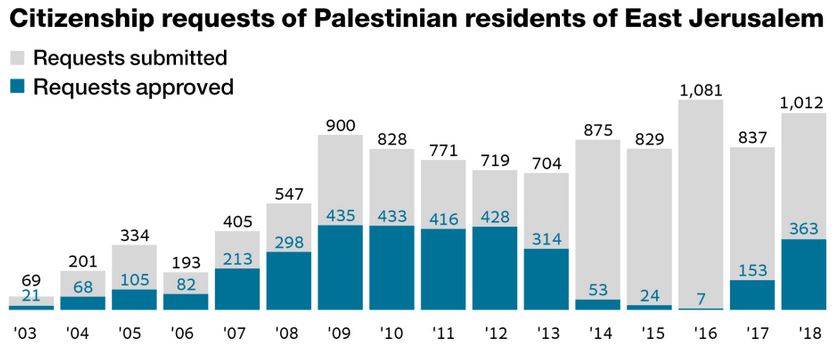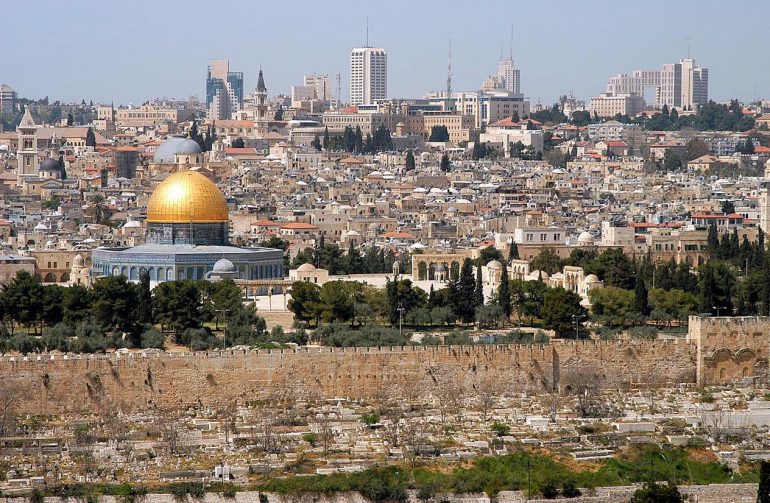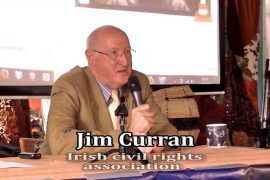Oliver Holmes has been the Guardian’s Jerusalem correspondent for nearly two years, yet, as he shows in a recent article about the Jerusalem neighborhood of Kafr Aqab, he still often fails to grasp some basic facts about the holy city.
Here’s the relevant paragraph from the piece, “Jerusalem’s ‘love neighbourhood’: a refuge for star-crossed Palestinians”, Nov. 10th:
Under Israel’s chaotically complex occupation, Palestinians are divided into multiple categories, often dictated by where they reside. Near the top of the bureaucratic hierarchy are Palestinians in Jerusalem, a city that Israel has annexed in its entirety and claims is “undivided”. They are eligible for Israeli services and can travel in the country, although they cannot vote or be full citizens.
First, Holmes omits important context, such as the fact that, after the Six Day War when Israel united the city, all Palestinians in ‘east’ Jerusalem were offered full citizenship. The overwhelming majority declined. So, instead, they were granted permanent residency status.
Additionally, though Palestinian residents of Jerusalem they can’t vote in national elections, they can vote in municipal elections – which renders Holmes’ claim that “they cannot vote”, at best, misleading.
However, the most egregious error is Holmes’ claim that they cannot “be full citizens”. In fact, Jerusalem’s Palestinians – who have become increasingly Israeli in their identity and political aspirations – are eligible to apply for full citizenship, and thousands of such requests have been approved.

We’ve filed a complaint with the Guardian’s Readers’ Editor over these false claims.
…
UPDATE: Shortly after our complaint, the Guardian corrected the article, and the following editors’ note was added:
Related Articles
- Backgrounder: History of Jerusalem (CAMERA)
- 4,000 word article at Prospect Magazine on ‘Corbynism’ ignores antisemitism (UK Media Watch)
- BBC WS radio framing of anti-Iran protests (BBC Watch)





